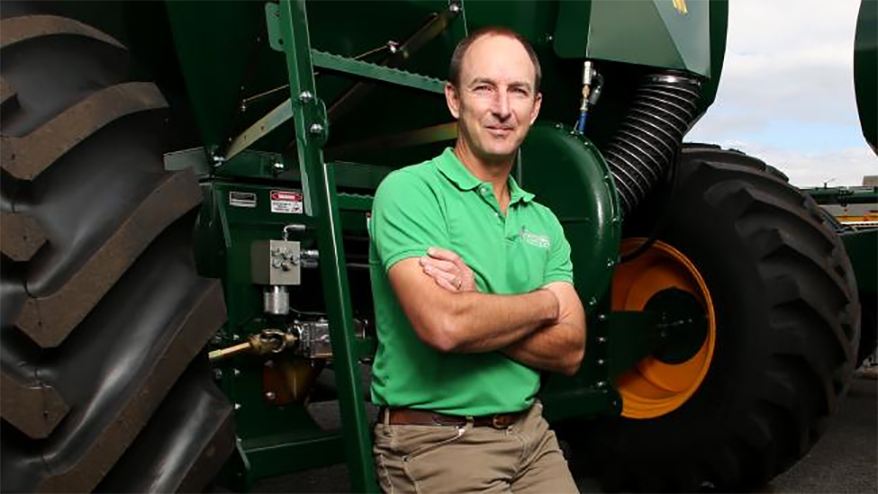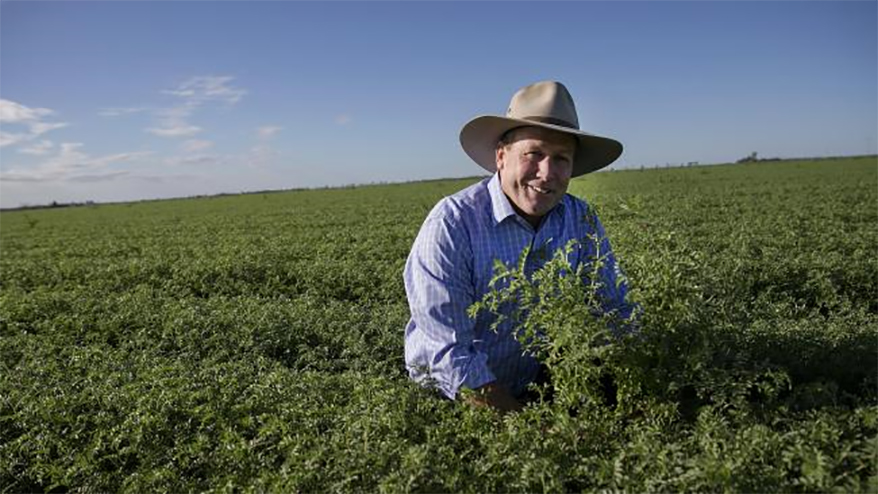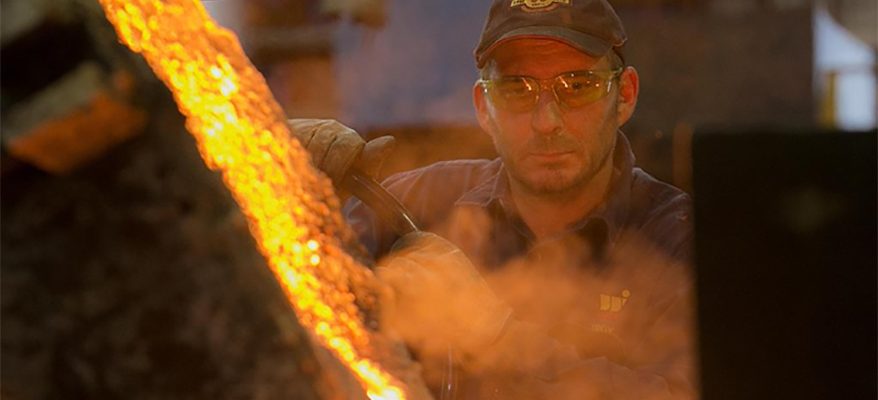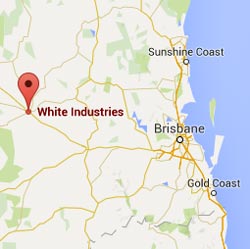Opinion: Why Dalby is the centre of the universe
The rolling wheat and cotton fields of Dalby on the Darling Downs are hardly the place you would expect to stumble upon one of Australia’s last remaining family foundries. Tucked just off the Warrego Highway, White Industries makes thousands of widgets, doodads and thingumabobs for the mining, rail, transport and agricultural industries.Metal components like turbocharger cylinder heads are made for the global rev-head market.
Managing director Bruce White admits it is rather incongruous to find a sophisticated manufacturing plant smack in the middle of Queensland’s grain and beef heartland. His father Bob, 77, started the business making waterski parts in his garage for Keith Williams in the 1960s. Today, if you lift the bonnet of just about any NASCAR racing in America today you will find turbocharger parts made by the family in Dalby. The Japanese, too, are customers. “We chose to stay in Dalby for the lifestyle. I drive home for lunch without going through a single traffic light,” said Bruce White, 53. With most Australian foundries succumbing to foreign competition, the company survives and prospers because it does the jobs no one else wants to. “We don’t do manhole covers or pipes that can be mass produced in China,” White said. “We do awkward shapes and complicated, high-integrity parts requiring special alloy steels. It’s become a highly technical business. “Everyone thinks you are country hicks if you live in Dalby. Not anymore.” Not far away, Simplicity Australia makes agricultural equipment to till the soil and plants seeds as far away as New Zealand, Russia and Africa.“We are a small manufacturer in a big pond,” general manager Troy Law said. “However, I don’t think there is another business in the world that makes a greater variety of air seeders.” Law, 45, admits the firm has had its hardships. In recent years, however, Simplicity has been profitable enough to fund million-dollar laser cutters and robotic welders.

And these delightful, gung-ho family outfits are about to be dwarfed by what comes next, says Western Downs Mayor Paul McVeigh. He is spruiking the region as an emerging energy hub. Origin is poised to start work next year on a $217 million solar farm, Australia’s largest, to be built next door to its gas-fired power station. Origin has pegged a 200ha paddock 45km west of Dalby that will be home to 400,000 solar panels. The panels are set to produce 108mW of renewable energy annually – enough to power 32,000 homes. And there is a much larger renewable project in the wind, McVeigh says. After an eight-year study, AGL wants to spend $500 million on a wind farm with 115 turbines on grazing land at Coopers Gap at the foot of the Bunya Mountains.
McVeigh says a massive project will also help boost Dalby and neighboring towns Bell and Jandowae. And he hopes it will cement the district’s green power credentials.
Also on the horizon is a major bio fuels industry. Melbourne service station tycoons Eddie Hirsch and Avi Silver’s United Petroleum is extracting 76 million litres of ethanol a year from locally grown sorghum.
The Western Downs Regional Council expects the ethanol industry to soar with the mandate for E10 fuel coming into force on January 1 next year. By happy coincidence SunPork’s Tong Park piggery, northwest of Dalby, is undergoing a $40 million expansion likely to see herd numbers soar to 130,000. The pigs will eat the mountains of fodder that are a byproduct of the ethanol extraction. McVeigh, 61, says he is proud his region is leading the transition towards a lower carbon emissions economy with gas, solar, and wind.

The region has a concentration of the most successful beef feedlots in the nation. While coal-seam gas has underpinned the region’s prosperity, there has been a resurgence of grain farming and beef. The region has a concentration of the most successful beef feedlots in the nation, one with a licence for 58,000 head. Meanwhile the Oakey beef export abattoir is moving to double production with 11,500 cattle slaughtered every week. The expansion includes an upgrade of rail sidings to allow direct live cattle deliveries. Up to 500 new jobs will be created. McVeigh points to the 2% unemployment rate, one of the lowest in the country. He now lives in a rambling Queenslander in Dalby while his son Steven, 28, runs the family properties.
“I’m very excited about the next generation,” he said. “They are better educated and they plan things better than we do.”
Article courtesy of Des Houghton, The Courier-Mail – October 8th, 2016



